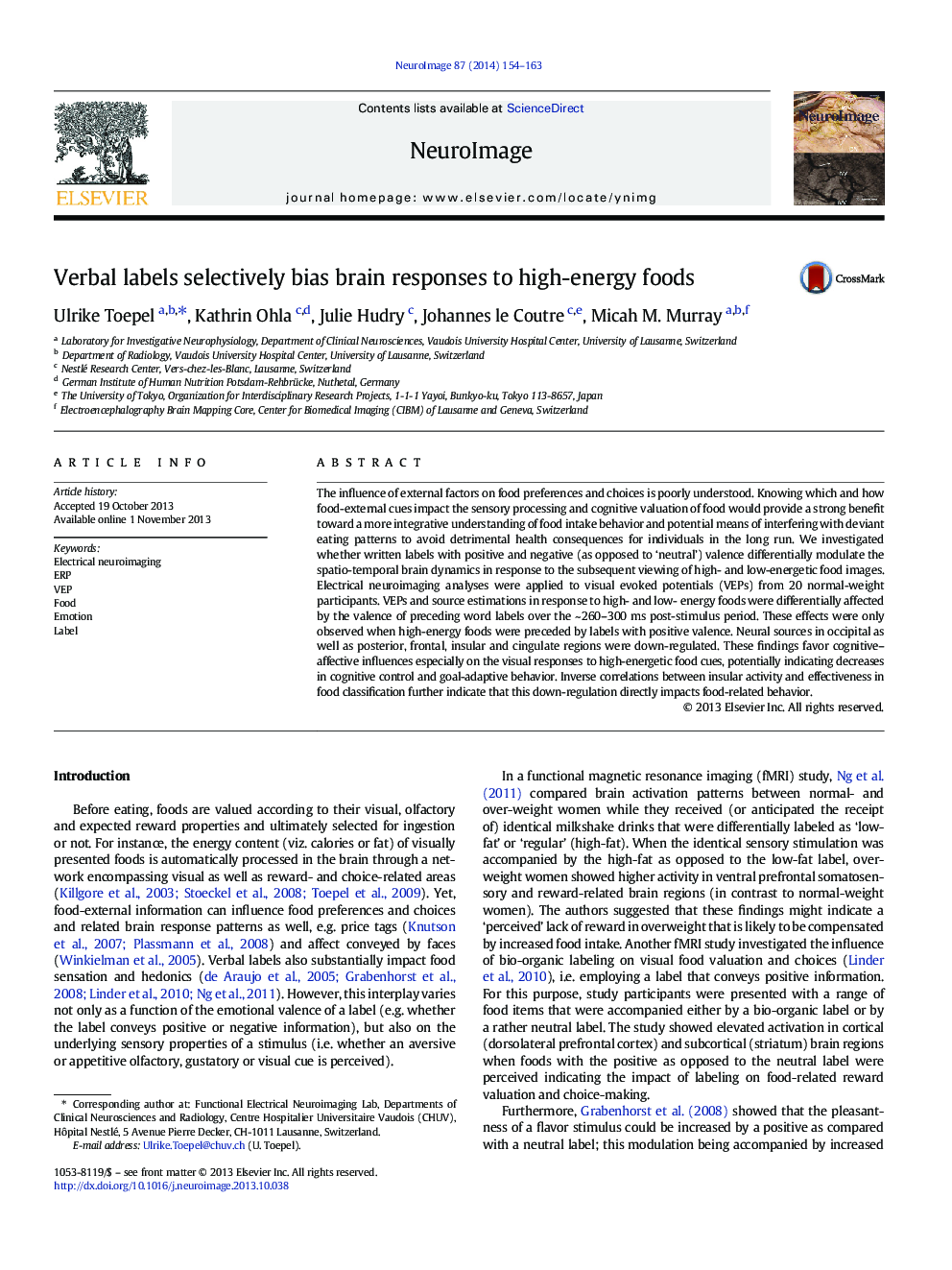| کد مقاله | کد نشریه | سال انتشار | مقاله انگلیسی | نسخه تمام متن |
|---|---|---|---|---|
| 6027898 | 1580918 | 2014 | 10 صفحه PDF | دانلود رایگان |
- VEPs to food viewing were affected by emotional labels from ~Â 260Â ms.
- Effects were confined to high-energy food preceded by labels with positive valence.
- These label-food combinations led to down-regulated neural source activity.
- Findings indicate implicit cognitive-affective influences during food viewing.
The influence of external factors on food preferences and choices is poorly understood. Knowing which and how food-external cues impact the sensory processing and cognitive valuation of food would provide a strong benefit toward a more integrative understanding of food intake behavior and potential means of interfering with deviant eating patterns to avoid detrimental health consequences for individuals in the long run. We investigated whether written labels with positive and negative (as opposed to 'neutral') valence differentially modulate the spatio-temporal brain dynamics in response to the subsequent viewing of high- and low-energetic food images. Electrical neuroimaging analyses were applied to visual evoked potentials (VEPs) from 20 normal-weight participants. VEPs and source estimations in response to high- and low- energy foods were differentially affected by the valence of preceding word labels over the ~Â 260-300Â ms post-stimulus period. These effects were only observed when high-energy foods were preceded by labels with positive valence. Neural sources in occipital as well as posterior, frontal, insular and cingulate regions were down-regulated. These findings favor cognitive-affective influences especially on the visual responses to high-energetic food cues, potentially indicating decreases in cognitive control and goal-adaptive behavior. Inverse correlations between insular activity and effectiveness in food classification further indicate that this down-regulation directly impacts food-related behavior.
Journal: NeuroImage - Volume 87, 15 February 2014, Pages 154-163
